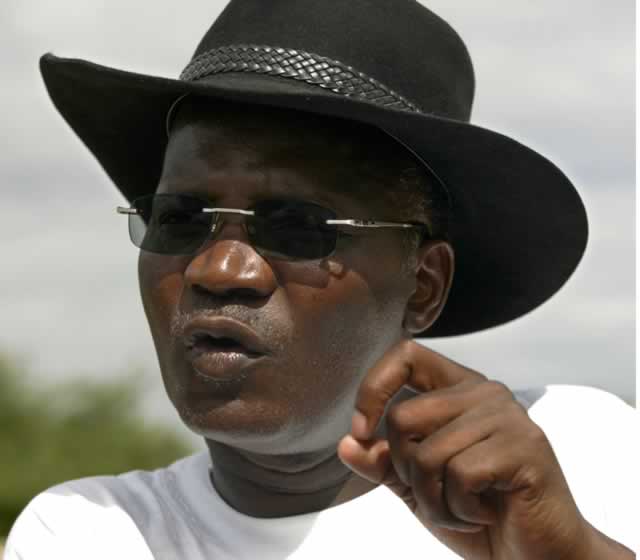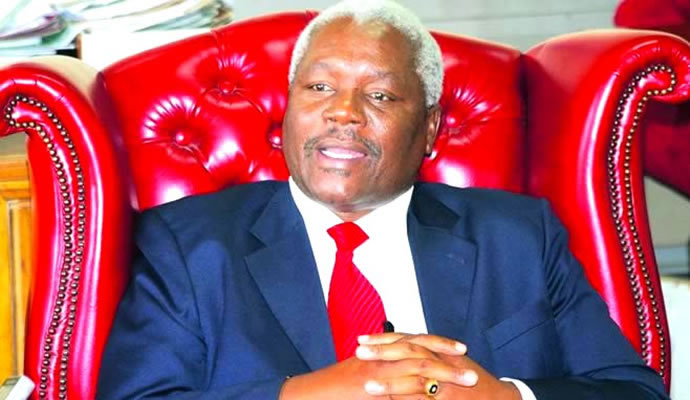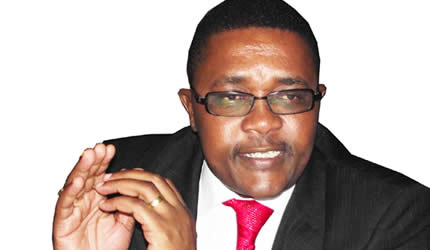Time Zim takes strong stand against sanctions: Analysts

Lloyd Gumbo and Tendai Mugabe
IT is time Zimbabwe took a strong stand against Western countries that slapped it with illegal economic sanctions and continue meddling in its internal affairs, analysts have said. This comes in the wake of President Mugabe’s announcement that Zimbabwe would hit back with punitive measures against companies owned by the West’s kith and kin in Zimbabwe that were also complicit in sabotaging the economy.
Sanctions imposed by the United States, Britain and their allies are estimated to have cost the economy over US$42 billion in lost revenue with outgoing Finance Minister Tendai Biti saying the embargoes compressed the economy by a factor of over 40 percent over the past 13 years.
Jobs and livelihoods were destroyed, with pensions and savings wiped out when the Zimbabwe dollar collapsed due to sanctions-induced hyperinflation in 2008 with hundreds of people dying from preventable diseases like cholera as Government’s capacity to provide potable water was curtailed.
Over two million Zimbabweans condemned the sanctions regimes during the National Anti-Sanctions petition campaign held in March 2011, with the AU, Sadc, Comesa, the Non Aligned Movement, African Caribbean and Pacific countries adding their voices but the west turned a deaf ear in the same manner it went against these bodies over the harmonised elections that were widely hailed as free, fair and credible.
Political scientist and Zanu-PF Politburo member Professor Jonathan Moyo said tit-for-tat was a well-established diplomatic principle in international relations.
“The illegal sanctions imposed on Zimbabwe by Britain and her allies are against the principle of mutual benefit and they are based on the false notion that international relations are one way traffic when in fact it is two way traffic,” he said.
“You scratch my back and I will scratch yours. If they slap sanctions on us, it is rational for us to respond in the same currency.
“That is the rule of the game. What the President is saying was long overdue. The time for doing so is now .”
Prof Moyo said although Zimbabwe wanted to pursue a diplomatic way of resolving differences, the West was pushing for confrontation.
“This is not our preferred way of restoring our relations,” he said.
“We have done everything possible to achieve normal relations, but if they cannot understand that language then we are also able to speak the same language of sanctions. We can even speak it better than them.”
University of Zimbabwe political scientist Dr Charity Manyeruke said sanctions were not the preserve of the west.
“It is possible for developing countries to use sanctions as well. Things are no longer the same in Western countries and they are also depending on China for financial help.”
Dr Manyeruke said Western countries depended on Zimbabwe for raw materials and the country could withhold them as a way of forcing Western capitals to the negotiating table.
Zimbabwe’s former ambassador to China and Zanu-PF MP elect for Norton, Ambassador Christopher Mutsvangwa, said it was important for the West to take President Mugabe’s warning seriously.
“If people continue to behave as if Zimbabwe is a perpetual minor in global affairs then we have to eventually look at our options. They have to become mature in London so that we can develop a wholesome relationship. Unfortunately, there is so much myopia there,” Ambassador Mutsvangwa said.
He said it was important for the West to pursue good relations with Zimbabwe to avoid a confrontational relationship.
Political analyst Mr Godwine Mureriwa, said Zimbabwe should take a reciprocal approach on the issue of sanctions.
“The basis of international law as enshrined in the United Nations Charter respect the issue of state sovereignty,” he said.
“Countries engage on an equal basis and if you impose sanctions on a country outside the dictates of the United Nations that is undermining the UN Charter.
“Zimbabwe has been diplomatic by taking a non aggressive stance but we cannot continue to give them one cheek after the other.”
War veterans leader Cde Jabulani Sibanda, said it was time Zimbabwe retaliated.
“I don’t see any problem surely of hitting back. They are using sanctions against us, as a weapon to weaken the Zanu-PF Government.
“The British are putting sanctions on our Government yet they are yielding profits from our country to sustain their Government that is oppressing our Government. We are not stupid to allow that.
“The President is right. He has the support of the war veterans and our people in general who are simply saying let those who are friendly to us work with us and those who are against us, let us get rid of them,” Cde Sibanda said.
Midlands State University lecturer and political analyst, Mr Christopher Gwatidzo, said it was high time Zimbabwe stood its ground against the West.
He said the indigenisation and economic empowerment drive being spearheaded by Zanu-PF was the answer to dealing with the West’s incessant attacks.
“The reason why sanctions have been successful on us is because a great number of these companies have their DNA stretching back into America and Britain,” said Mr Gwatidzo.
“If we owned these companies and we were doing business with the Asian world, it is difficult for the UK to speak in the manner they are speaking. Right now they are saying what they are saying because they have some control through companies here.
“The only way we can move forward as a nation is to have total control of our economy and that gives us leverage to work closely with whosoever is offering partnership terms like emerging trading blocks of Brazil, India, China and Malaysia among others.”
Political analyst Mr Gabriel Chaibva added: “It is actually correct that it’s time we should hit back. The British and the Americans must not think that they have a monopoly of hitting and hurting others.
“After all we have done them no wrong. They have done us more wrong from slavery, colonialism, imperialism, neo-colonialism and exploiting the resources of Africa. It is time now we hit them and that is the appropriate response.”










Comments